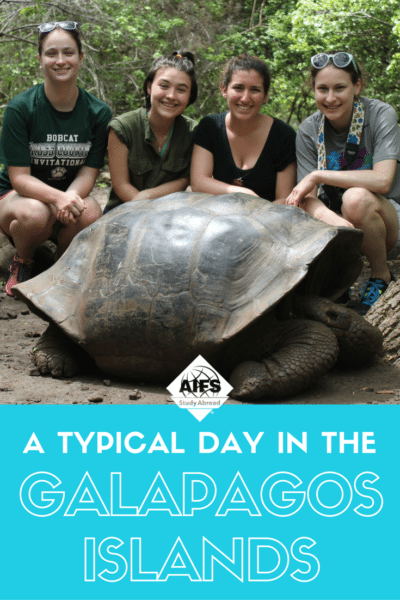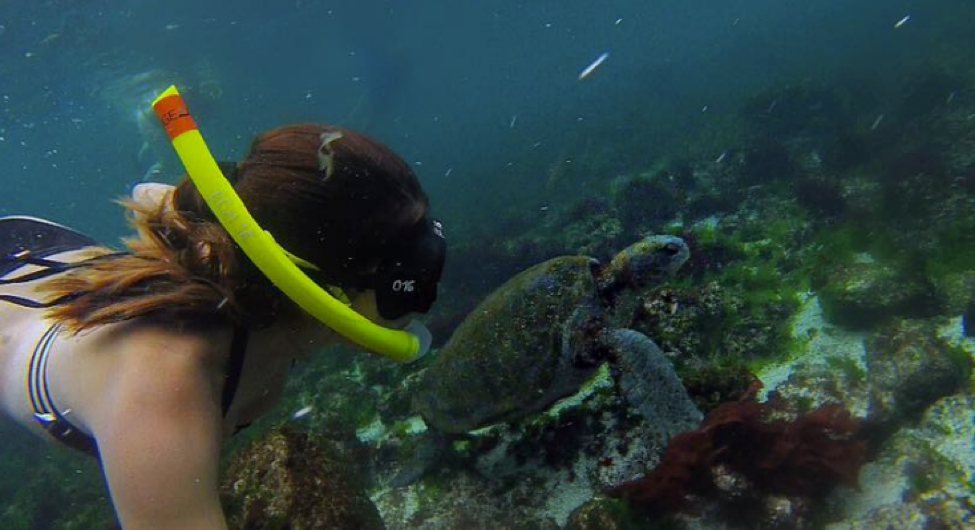Last Updated on June 5, 2023 by AIFS Abroad
The alarm goes off. No need really, as it’s already been daylight for about an hour; perks of being located on the Equator means that daylight hours are 6am–6pm every day of the year. After a breakfast of coffee, scrambled eggs and whichever delicious fruit has been juiced that morning, it’s time to walk down to the USFQ extension campus at Playa Mann. The short walk crests a hill, and more often than not, you’ll pass the local navy recruits out for their morning jog, as well as a couple of lizards catching the warm rays of the sun.
Arriving at the campus, it’s difficult not to pause on the beach to take in the sights and sounds; boats bobbing in the harbor and baby sea lions calling out to their moms with their odd bleats that make them sound more like lambs! Still, class beckons and it’s into the (thankfully) air-conditioned classroom to start the day!
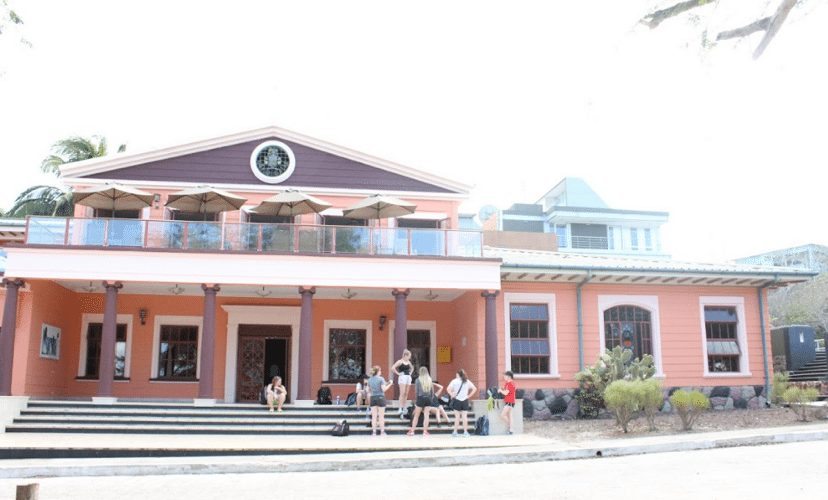
Today, we’re learning about endemic species in the Galápagos, such as the Marine Iguana. Professor Alex Hearn turns on the coffee pot and begins to explain how the magnificent creatures, once described by Darwin as “clumsy, ugly lizards,” are in fact, older than the oldest island in the archipelago, which leads back to previous discussions on day one about the geology and history of the islands. How can a creature be older than the island it lives on?
Breaking out of the classroom for a group discussion, we take the opportunity to sit on the terrace while students lead the conversation on a paper about another endemic species, Darwin’s Finches. The paper is written by Peter and Rosemary Grant, who spent six months a year for almost forty years capturing, tagging and documenting the population of tiny birds on the Daphne Major Island. It’s easy to see how the islands keep drawing people back.
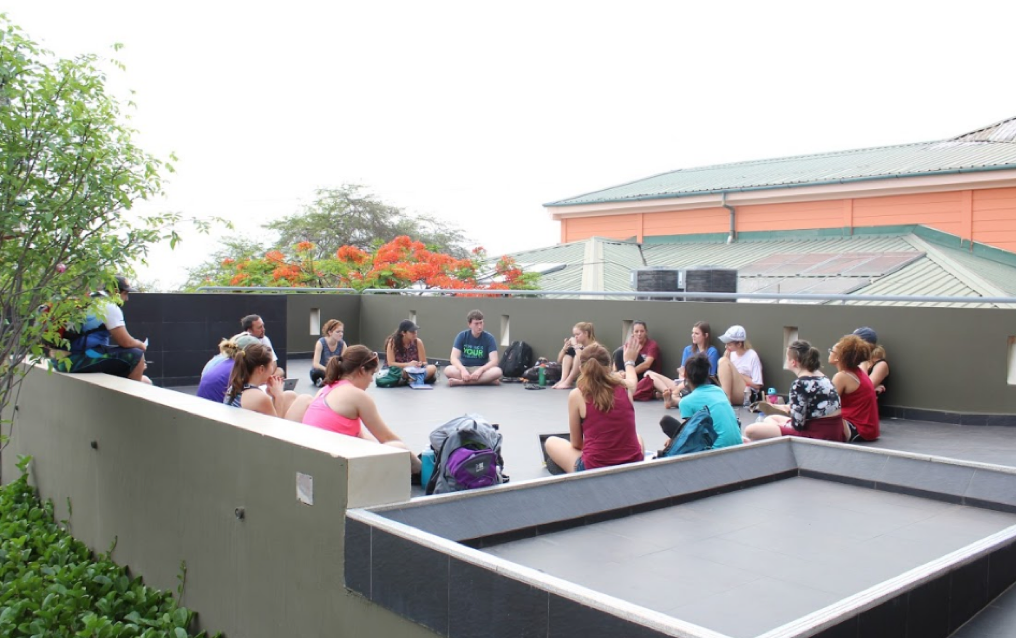
After a hearty lunch of local tuna, potatoes and vegetables, washed down with more fruit juice, it’s time to head to La Lobería. Located just ten minutes from Puerto Baquerizo Moreno on the other side of the airport, La Lobería is a beautiful white sand beach with trails leading up into the cliffs. We’re going to snorkel in the bay, but first, we hike!
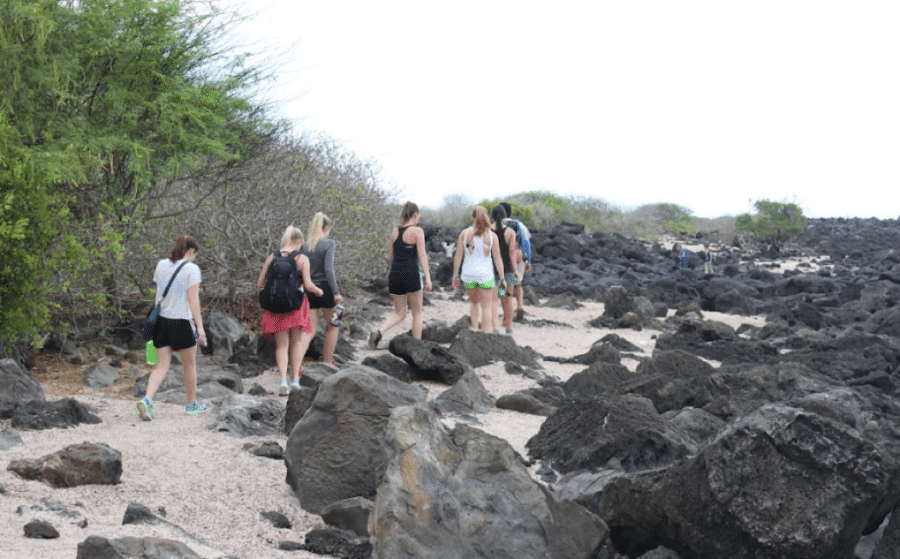
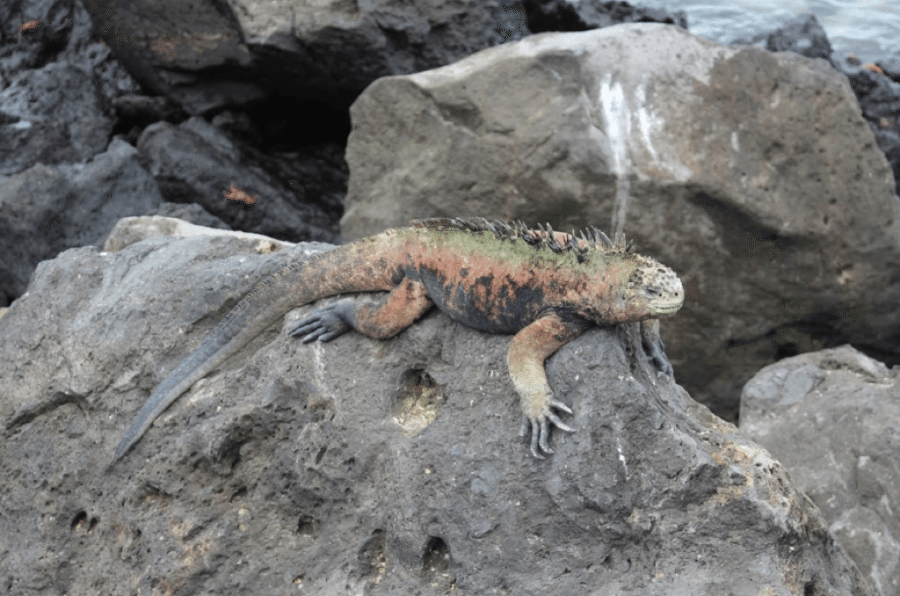
Our National Parks guide, Daniel, leads us along the sandy path which quickly turns into clusters of lava rocks. As we scramble across the coastline, it’s easy to almost miss our well-camouflaged companions— dozens of Marine Iguanas, sunning themselves and jostling for position. Moving slowly, we pause to allow a younger male pass by as he moves towards the water. Eventually, reaching the clifftop, we stop to catch our breath. Below us, waves crash onto the coastline while above, birds soar on air currents. It’s hot, and we’re all eager to get into the water.
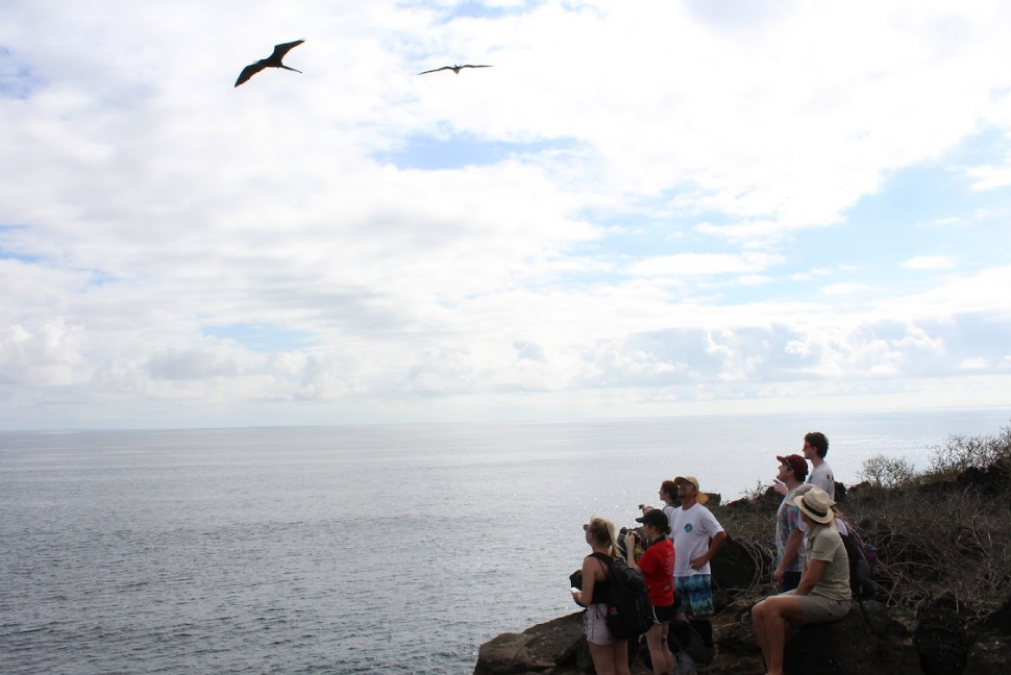
Back on the beach, a quick change into swimsuits and snorkel gear – and then it’s into the cool, refreshing waves! Leading the way, our guides giggle as we struggle with flippers and quickly abandon any attempt to be graceful. In minutes we’re exploring the bay, the schools of fish beneath us, and curious sea-lions coming to play. There’s even a sea turtle, no doubt wondering what all the fuss is about.
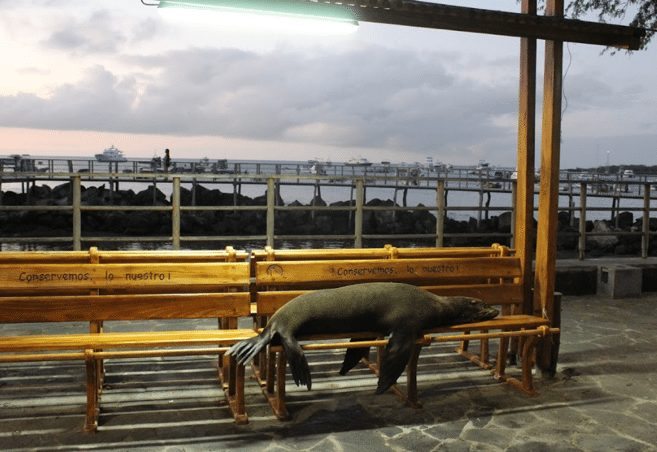
After an hour or so in the water and on the beach, it’s time to return home. Drying off and back onto the bus, we’re hit by a wave of contented exhaustion! Arriving back into town, we return to our homestay families for showers, and a well-deserved dinner of chicken and rice. The sky grows dark again and it’s futile fighting sleep; tomorrow we have another corner of the island and more creatures to discover!
This post was contributed by Sarah Plumley. Sarah is AIFS Resident Director for the Galápagos J-Term and Summer programs. It was a hard choice, but this was her favorite day of the January 2017 program.
To learn about how you can study abroad in the Galápagos Islands this summer or during January Term/winter break, click here.
Featured image credit: Aurora Wiseman, Hawaii Pacific University
